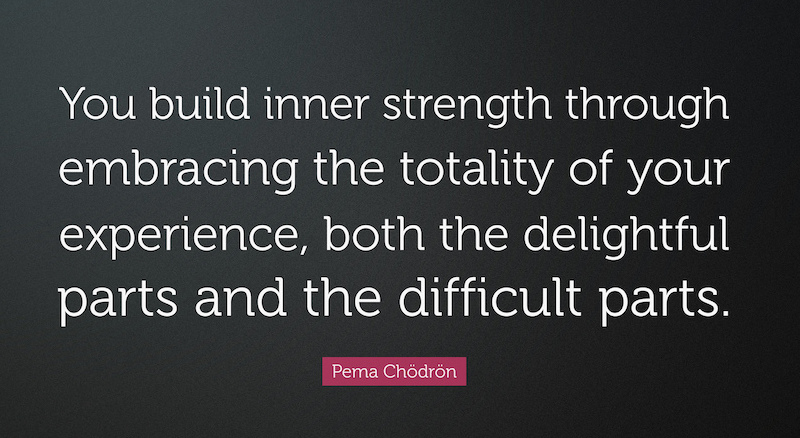I’ve been thinking a lot about emotional intelligence and the Bar-On Model of Emotional-Social Intelligence. According to the Bar-On model, “emotional-social intelligence is a cross-section of interrelated emotional and social competencies, skills and facilitators that determine how effectively we understand and express ourselves, understand others and relate with them, and cope with daily demands” (Bar-On, 2006, p. 14).
One particular factor of the Bar-On model, self-regard, has piqued my interest as I observe and reflect on human behaviors and interact with working professionals and other adults.
Self-regard is respecting oneself while understanding and accepting one’s strengths and weaknesses. Self-regard is often associated with feelings of inner strength and self-confidence (Multi-Health Systems, 2011).
“Self-regard is the ability to respect and accept yourself—essentially liking the way you are. To have healthy self-regard is to appreciate your perceived positive aspects and possibilities, as well as to accept your negative aspects and limitations and still feel good about yourself . . . This conceptual component of emotional intelligence is associated with general feelings of security, inner strength, self-assuredness, self-confidence, and self-adequacy” (Stein & Book, 2011, p. 68).
In The EQ Difference, Lynn (2005) describes different voices that are part of our internal dialogue. The ones that I believe apply to today’s post are the victim voice (you’re a victim, it’s never your fault), the failure voice (you’re a failure), the self-doubt voice (“a future-focused pessimist waiting to kill your tomorrow” [p. 64]), the famine voice (there never is & never will be enough), the comparison voice (compares everything with what others have), the envy voice (being jealous you don’t have what others have), and the bad luck voice (everyone else gets good luck, except you).
If you struggle with self-regard (i.e., feelings of inner strength and self-confidence), you may notice that a number of these internal “voices,” not only appear but, dominate your mind.
We all, to some extent and on some level, have one or more of these internal dialogues going on in our mind. The difference is that individuals with well-developed self-regard know their strengths and weaknesses, and still like themselves, warts and all [an expression meaning including qualities or features that aren’t attractive or appealing] (Stein & Book, 2011). And, by doing so, they’ve learned to quiet the sometimes noisy voices in their heads.
“Because individuals with healthy self-regard know their strengths and weaknesses and feel good about themselves, they have no trouble openly and appropriately acknowledging when they have made mistakes, are wrong, or don’t know all the answers. Feeling sure of oneself is dependent upon self-respect and self-esteem, which are based on a fairly well-developed sense of identity. People with good self-regard feel fulfilled and satisfied with themselves” (Stein & Book, 2011, p. 68).
What about self-regard and leadership? Individuals with low self-regard tend to doubt their own abilities and second guess their decisions, and this doubt holds them back from effectively and confidently leading a team (Multi-Health Systems, 2014).
In FYI: For Your Improvement (a guide for coaching and development), Lombardo and Eichinger talked about the importance of self-knowledge and why knowing yourself is vital to success in work and in life:
“Deploying yourself against life and work is greatly helped by really knowing what you’re good, average and bad at, what you’re untested in, and what you overdo or overuse. Known weaknesses don’t get you in as much trouble as blind spots. You can loop around and compensate for a known weakness. A blind spot is the worst thing you can have. You can really get into performance or career trouble with a blind spot, because you don’t know or are unwilling to admit you’re not good at it” (Lombardo & Eichinger, 2000, p. 328).
When you like yourself—warts and all—and hold yourself in high self-regard, you know your strengths, weaknesses, and limits. You seek feedback and are able to learn from mistakes. You’re open to criticisms, receptive to discussing your shortcomings, and are not defensive (Lombardo & Eichinger, 2000).
People with high self-regard, those with inner strength and self-confidence, don’t (1) blame others for their own mistakes, (2) go out of their way to hurt or discredit people, (3) feel the need to put others down to feel better about themselves, or (4) inflate themselves or act like a know-it-all in order to prove their worth.
“The real champions in life are so humble and gracious. They just continue doing what they do without all the posturing. If you’ve got the real thing, you don’t have to flaunt a loud imitation.” -Denis Waitley
Written By: Steve Nguyen, Ph.D.
Leadership + Talent Development Advisor
References
Bar-On, R. (2006). The Bar-On model of emotional-social intelligence (ESI). Psicothema, 18, supl., 13-25.
Lombardo, M. M., & Eichinger, R. W. (2000). FYI: For Your Improvement: A Development and Coaching Guide (3rd ed.). Minneapolis, MN: Lominger Limited, Inc.
Lynn, A. B. (2005). The EQ Difference: A Powerful Plan for Putting Emotional Intelligence to Work. New York, NY: AMACOM.
Multi-Health Systems (MHS). (2011). EQ-i 2.0 User’s Handbook. Toronto, Canada: Multi-Health Systems.
Multi-Health Systems (MHS). (2014). EQ 360 Leadership Report. Toronto, Canada: Multi-Health Systems.
Stein, S. J., & Book, H. E. (2011). The EQ Edge: Emotional Intelligence and Your Success (3rd ed.). Mississauga, ON: Jossey-Bass.
Originally published at workplacepsychology.net


